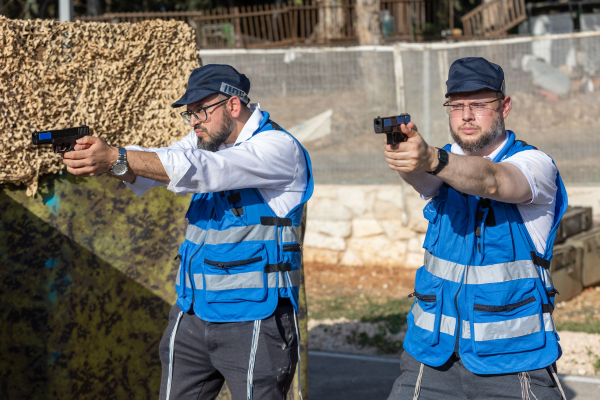73% of Haredi respondents expressed a heightened sense of shared destiny with Israeli society.
By Sveta Listratov, TPS
Israel’s Orthodox community is undergoing a surge in identification and involvement in Israeli society, a survey released on Sunday has found. The findings show a marked evolution in Orthodox views on issues such as military service and social integration.
“It seems that the shock of October 7 flooded to the surface the feelings and processes that had already started before and were simmering on low heat,” Shai Stern, deputy chairman of the Institute for Haredi Policy Studies told the Tazpit Press Service. The Jerusalem-based Orthodox research institute commissioned the survey.
The Hebrew word, Haredi, refers to Jews devoutly observant of Jewish law, customs and Torah study.
In a survey of 500 Haredim, 73% of the respondents expressed a heightened sense of shared destiny with Israeli society. When asked if they felt that they were part of “the Israeli narrative,” 75% said yes, of whom 53% said they felt “profoundly” so.
The data further found that 32% of the haredim favored increased involvement within Israel. This was paralleled by a 20% rise in support for haredi integration into the military and security establishment. Those are “pivotal” numbers, Stern told TPS.
“It is important to understand that sometimes the public formulates positions regardless of politicians and the positions they broadcast,” said Stern. “That said, the haredim do not intend to give up their characteristics, chief of which is the value of Torah study. This resolute commitment reaffirms the enduring essence of the community’s core values, signaling a nuanced balance between evolving societal stances and stanch traditions.”
On the issue of military service, 70% said that haredim not engaged in Torah study should contribute to the country through military conscription or national volunteer service.
Yaakov Vider, a member of the Bnei Brak city council and advocate for greater collaboration between the haredim and Israeli society told TPS he welcomed the survey’s findings.
“Since the beginning of the war, I have led many initiatives by the residents of Bnei Brak to assist the security and rescue forces,” Vider said. “This is not at all surprising – Bnei Brak is a city of deep connection to the entire Israeli people, the city where the most volunteers live and whose residents contribute to the state in every possible way and with great pride.”
The survey also found that 53% believed that after the war, haredi communities should relinquish controversial coalition funds that were politically earmarked for their educational institutions. Israel’s unity government had vowed to pass a supplementary budget that did not include non-war needs. However, the 29 billion shekel ($7.9 billion) budget passed by the Knesset on Dec. 14 included hundreds of millions of shekels in discretionary funding, drawing criticism from opposition and some coalition MKs.
Said Stern to TPS, “It is distinctly felt that ultra-orthodox society is open to a new discussion of its place in Israeli society, including the conventions that once existed.”
